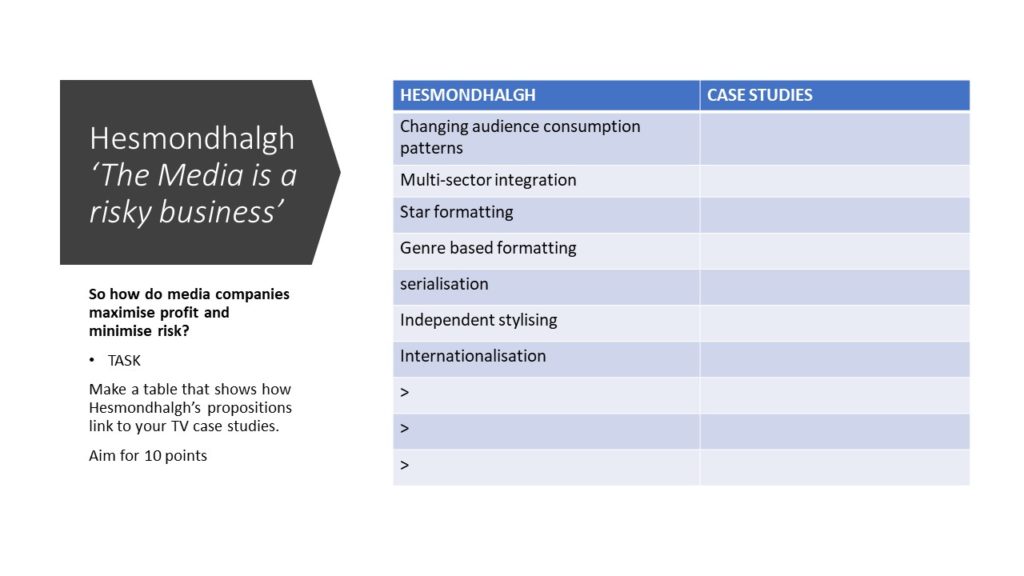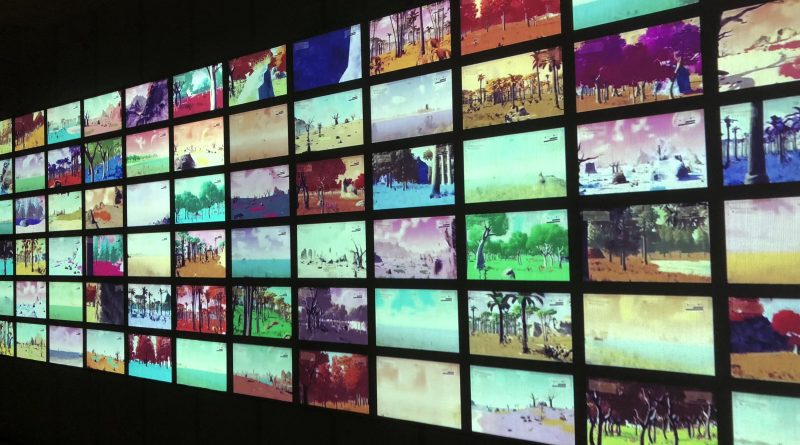1. Overview and Screening
We are now going to revisit TELEVISION, which directly connects to the CSP text that you studied in the AS year. To make it clear, there is a specific A2 television text that accompanies a specific AS televsion text. So (if) a question comes up in one of the A2 exams about television it will ask you to compare one of 3 pairs. To be absolutely clear: you will need to talk about both of your specific texts BUT you can choose which pair you talk about. So your choice of paired texts are:
Either Capital and Deutschland 83
OR
Witnesses and The Missing
OR
No Offence and The Killing
For more details look at pages 5-19 in the CSP booklet (below): PLEASE LOOK THROUGH THIS BOOKLET.
To ensure that you have all had the opportunity to watch the episodes that you want to study – or for the opportunity to watch all of them (why not?) then I will play them in the first academic week of January over Teams. If this does not work for you then I will provide screening opportunities after school when we return w/c 11th January. Failing that and/or in terms of revision you can access the programmes by following the links, or we have some of the episodes on DVD.
Task 1:
SO . . . CHOOSE YOUR TEXTS!
And remember that the key approach is to think about AUDIENCES & INSTITUTIONS in other words,
- Who is the primary, secondary and tertiary audience for these products?
- What audience theories can you apply to which help you to develop a better understanding of the potential target audience?
- What ideas and approaches about media institutions (rather than individuals) can be applied in terms of the production, distribution & exhibition of your chosen pair of television programmes?
Task 2:
READ THESE: Hesmondhalgh; Livingstone & Lunt; Curran and Seaton.
Extract 5 bullet points that include quotation (that you could use in an essay as support for an argument – think about what the argument would be?)
Q: What is the difference between a consumer based media regulation system and a citizen based regulation system?
Q. What impact did the 2003 Communications Act have on media regulation?
Q. What is the drawback of a self-regulated system?
Q. How do you regulate media content and organisations on a global scale?


